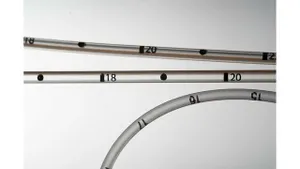September 5, 2017

 A quick Google search on the theft of plastic materials called up about a dozen news articles appearing over the last two years in various media outlets across the country. It appears that stealing plastic containers and pallets is not only easy but profitable.
A quick Google search on the theft of plastic materials called up about a dozen news articles appearing over the last two years in various media outlets across the country. It appears that stealing plastic containers and pallets is not only easy but profitable.
Just this past May, an article in the Brownsville Herald in Texas recounted how easy it is for thieves to steal plastic containers and pallets that are left behind grocery and other retail stores awaiting pickup for reuse. Leaving reusable plastic containers out for the vendor to pick up is standard practice, but it’s costly.
Journalist Frank Garza wrote that the thieves pick up the crates at night and sell them to a recycler who then grinds them up and ships them off to China. Local investigators raided a recycling company, Alandro Resources LLC, in Brownsville “after the company knowingly processed stolen plastic,” District Attorney Luis V. Saenz said. Garza’s article noted that the Brownsville police had “issued a warning to the recycling company that the crates were stolen goods two months ago.”
In 2013, the Texas Retailers Association began a program called Operation S.T.O.P.P. (Stop Theft of Plastic Products). The group estimated that theft of plastic containers and pallets costs retailers more than $10 million annually, and that was just in the Houston area. Nationally, the estimate runs as high as $500 million in stolen containers, totes and pallets from retail outlets.
The theft of materials—not just plastics but copper from air conditioning units and other industrial products—got so bad in Arizona that the state passed a law making it illegal for recyclers to pay “cash on the barrel head” for materials brought in to sell. The sellers must fill out a form and show identification with name, address and other information. Then, if the materials are “clean,” a check is sent to the seller in the mail. Obviously that doesn’t always work as there are some who don’t obey the law.
On some of the high-dollar items, such as plastic pallets, which can cost upward of $150 to $200 each, molders are molding in RFID tags and locator chips that can track the pallets so they can be recovered before they are ground up.
The Institute of Scrap Recycling Industries (ISRI) announced on Aug. 29 that ScrapTheftAlert.com is now available on the Law Enforcement Enterprise Portal (LEEP). LEEP’s 60,000 registered users in law enforcement, intelligence groups and criminal justice now have access to the alert system, which assists in the fight against materials theft.
“Since it was created by the recycling industry nearly 10 years ago, ScrapTheftAlert.com has become a proven tool for identifying and apprehending criminals, sharing intelligence across jurisdictions and recovering stolen property,” said Robin Wiener, President of ISRI. Strengthening the relationship between recyclers and law enforcement is a top priority for the recycling industry. As a service provider on LEEP, law enforcement has better access to broadcast out information about stolen materials. And recyclers will be better informed to be on the lookout for such materials. It is a win-win for everyone except criminals.
ScrapTheftAlert.com is a free online system that allows registered users to broadcast email alerts within a 100-mile radius of a theft; the area can be expanded, if needed. Detailed descriptions and photos can be uploaded so nearby recycling facilities can be on the lookout for stolen materials. In addition, it contains enhanced search features for vetted law enforcement officials. Since its launch in 2008, more than 18,500 alerts have been issued by more than 21,000 active users. The system has helped recover more than $2.1 million in property.
About the Author(s)
You May Also Like




